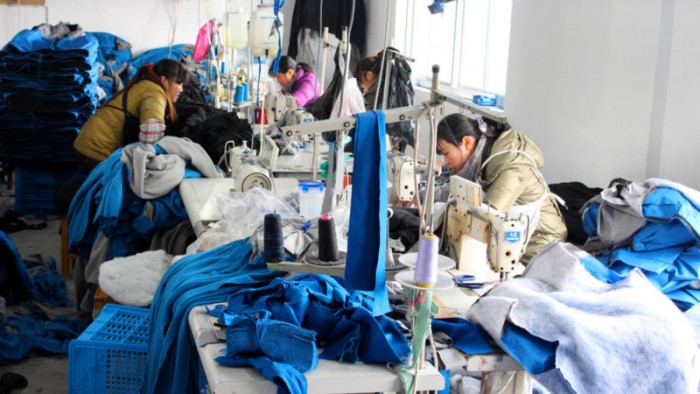Who fears the wolf of globalisation?
I was discussing this article with Kumiko. We came to the conclusion that the most charitable explanation for its penultimate confusion - exactly who, really, is to be persuaded and of what? has to do with perhaps a shyness in having to talk in a situation controlled by right wing interests: Euractiv, The EU, corporate industries invested in Asia, and German corporate interests - rather, the difficulty in getting them to see their interests aright.
Seeing the article’s argument more clearly, German, Dutch and other European workers and Asian workers should have higher salaries. That would allow Germans in particular to buy more of their own product and export less and allow Asian economies to buy more European exports in addition to their own domestic product.
The key is to dissuade corporate feudalism - the idea that low wages are a corollary to profitable business. The article argues in effect that low wages are only a corollary to enormous profit for a narrow group of elites, poorer workers and not to successful industry and healthy economic balance.
Where Germany, for example, does not let some of its industry go abroad, it should be incorporating more robotics to increase the better output as they might provide and “make-work” if necessary, with better paid “workers”, with more capacity to buy more of their own domestic product.
Euractiv, “Who fears the wolf of globalisation?”, 14 Oct 2016:

Trade unions and companies are more closely aligned against the harmful competition stemming from emerging economies’ low salaries and working conditions than ever before. The EU’s export of jobs is harming itself and the global economy, write Ernest Maragall and Jordi Angusto.
Ernest Maragall is an MEP with the Green/EFA group and Jordi Angusto is an economist.
They are accused of taking our jobs as a result of the low-cost products we buy from them. But the fact is that the EU’s external surplus has now reached an astonishing amount, close to half a trillion euros. This is 20% bigger than the Chinese surplus and both together pose a serious threat to the world economy.
In other words, by restricting our domestic demand through austerity we’re harming both ourselves and our major trading partners.
There is no ‘foreign enemy’ taking our jobs, rather the EU is taking jobs to the rest of the world. Prime examples are countries such as Germany and the Netherlands which are the main contributors to the EU surplus and which today have historically high employment thanks to third country demand, mostly from the US, UK, Canada, Brazil and Australia. And this is most definitely not because Germany and the Netherlands have low salaries.
In fact, companies tend not to invest where salaries are lower but where the difference between product per worker and salary is greater; i.e. where profitability can be greatest. In the case of Germany, the reunification process and the Schröder 2010 plan led to a huge contraction in wages and a notable increase in the product to salary difference.
Some might say they gained in terms of competitiveness, increasing economic activity, jobs and exports. Others, however, would see this not only as ‘beggar-thy-neighbour’, but their own people too, becoming unable to absorb increased production and depending on exports.
Whilst productivity gains can allow profits and wages to increase and support growth; competitiveness gained through wage dumping leads to a substitution effect, with jobs and profits gained here at the expense of jobs and profits lost elsewhere. This, in turn, leads to contraction because of a fall in demand.
That’s why institutions which could never be accused of being leftwing such as the IMF, the G20 and the OECD, have called upon Germany to increase domestic demand through public investment and salary increases, in order to help boost global growth whilst also contributing towards an improvement in labour conditions in emergent-economies.
Or do we think we’ll help them by competing to see who has the lowest salaries?
Globalisation brings many problems and with it comes the need for political action at a global level to heal our planet, eradicate tax havens and avoid the consolidation of a new corporate feudalism; but the fact that millions of people are emerging from poverty in Asia and Africa is not a problem. The critical problem today is much more how to convince those countries in surplus to increase their domestic demand.
